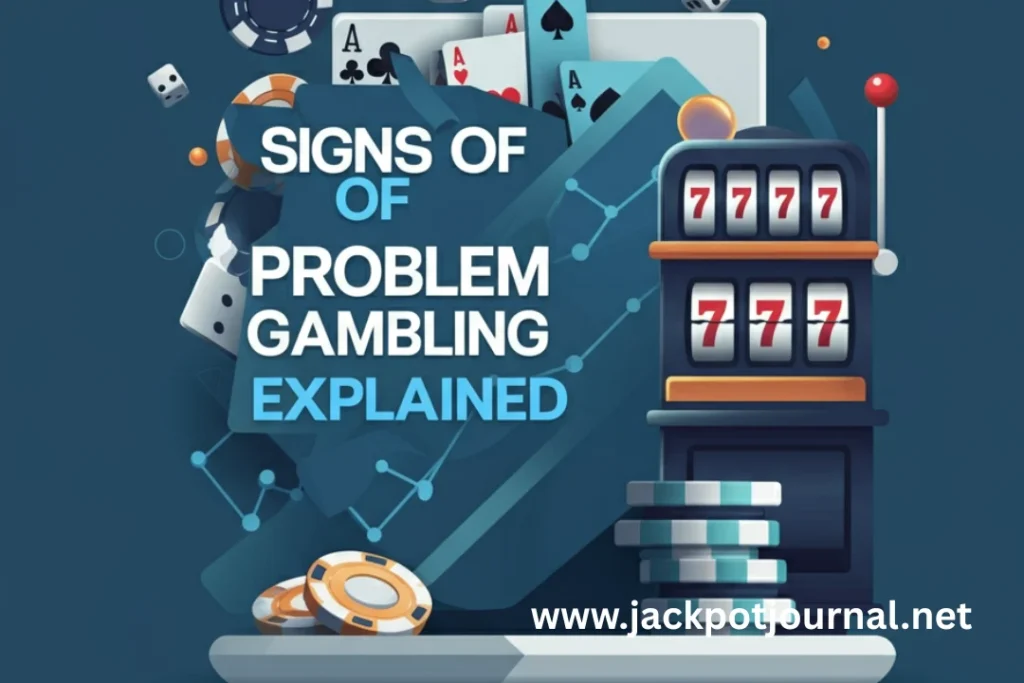Gambling is a popular way to unwind, socialize, and even chase the thrill of a big win. For many, it remains just a pastime. But sometimes things spiral out of control, and what was once harmless fun turns into a much bigger problem. Spotting the warning signs early can make all the difference. In this article, you’ll find the main signs of problem gambling explained in simple terms, along with advice on what to watch for and how to get support.
Financial Problems That Don’t Add Up
Money worries can be one of the most obvious signals that something isn’t right. If you or someone you care about is gambling too much, the stress often shows up in their bank account first.
Borrowing, Selling, or Hiding Money
- Do they often ask to borrow cash or use credit cards more than usual?
- Are valuable items suddenly missing or sold?
- Are there secret loans or unexplained debts?
These habits are easy to spot and almost always spell financial trouble linked to excessive gambling.
Unpaid Bills and Money Mismanagement
It’s common for people experiencing gambling problems to fall behind on rent, bills, or other important payments, even if their income should cover it. You might notice red reminder letters, disconnected utilities, or excuses about why bills aren’t paid.
Behavior and Mood Changes That Stand Out
Gambling impacts emotions as much as finances. People struggling with a gambling problem often seem different—irritable, distracted, or even downcast for no clear reason.
Secretive or Defensive Attitude
You might notice increased secrecy about whereabouts or spending habits — for example, hiding receipts or lying about where they’ve been. When asked, they could become defensive or try to brush off concerns.
Mood Swings and Anxiety
It’s not unusual for someone with a gambling problem to go from euphoria after a win to feeling anxious, guilty, or low after losing. If you notice mood swings that seem to go hand-in-hand with gambling activities, it’s time to take a closer look.
Neglecting Important Responsibilities
As gambling becomes all-consuming, the rest of life starts to slip.
- Work and School Performance: Skipping work, being late, or a sudden drop in grades are often linked to late-night gambling or preoccupation with bets.
- Family and Social Withdrawal: Missing family gatherings, dropping hobbies, and withdrawing from friends are clear warning signs. Sometimes people miss birthdays, anniversaries, or even daily obligations because of gambling.
Obsession with Gambling
When everyday routines start revolving around gambling, it’s a major red flag.
- Talking Constantly About Gambling: Conversations always circle back to wins, losses, or plans to gamble next.
- Change in Priorities: Cancelling plans or skipping important events to gamble is a warning sign.
- Can’t Cut Back: Despite worries, attempts to stop or reduce gambling usually fail.
Chasing Losses and Making Riskier Bets
Chasing losses means doubling down and making bigger bets to try and win back what was lost—a common and harmful pattern.
Bigger Risks, More Desperation
People may bet larger amounts, dipping into savings or even taking high-interest loans. The belief that the next win will turn everything around leads to more debt and financial strain.
Health, Stress, and Well-Being
The stress from problem gambling isn’t just about money—it affects the mind and body, too.
Sleep, Appetite, and Mental Health
People dealing with compulsive gambling may lose sleep, have trouble eating, or feel constant stress and anxiety. There may be increased use of alcohol, cigarettes, or other substances to cope with the emotional impact.
Conclusion: Breaking the Cycle is Possible
These signs of problem gambling explained in everyday language can help you recognize trouble before it gets worse. If you spot several of these red flags in yourself or someone you love, take it seriously. Talk openly and seek help—there’s no shame in asking for support. Many organizations and professionals are ready to guide you toward recovery, and early intervention makes a real difference. For more information or support, you can visit the National Council on Problem Gambling, which offers resources and a helpline for those affected.—
Frequently Asked Questions
1. What makes social gambling different from problem gambling?
Social gambling is low-risk and done for entertainment, while problem gambling means losing control and continuing to bet despite negative consequences.
2. Does online betting lead to gambling addictions?
Yes, online betting can lead to gambling addiction, since access is quick and convenient. All the signs of problem gambling explained above can appear with online gambling, too.
3. How do I help a loved one who may have a gambling problem?
Gently share your concerns without blame and offer to help them find support. Listen and let them know they’re not alone in facing this challenge.
4. Is problem gambling a mental health issue?
Yes, experts classify gambling addiction as a mental health disorder. It’s treatable with professional counseling and support groups.
5. Where can someone get help for problem gambling?
Support is available through national helplines, local addiction services, and organizations like Gamblers Anonymous. The earlier help is sought, the better the outcome for recovery.
You may also read: A Beginner’s Guide: 7 Responsible Gambling Tips

